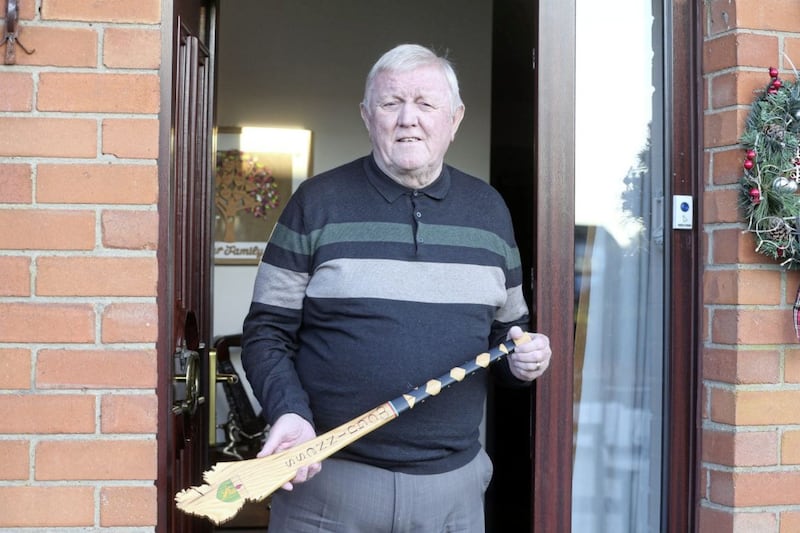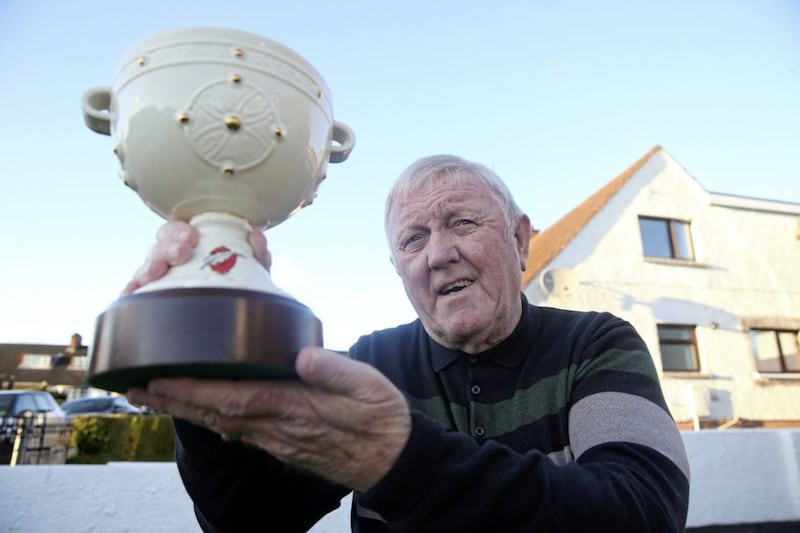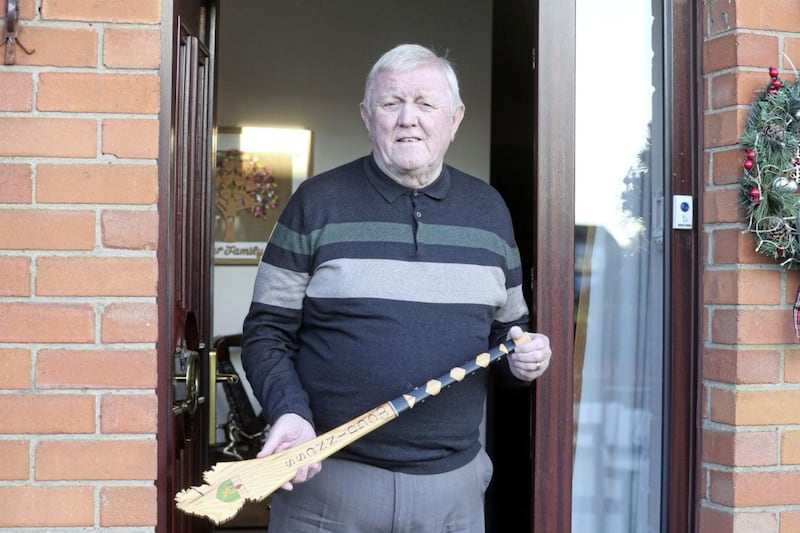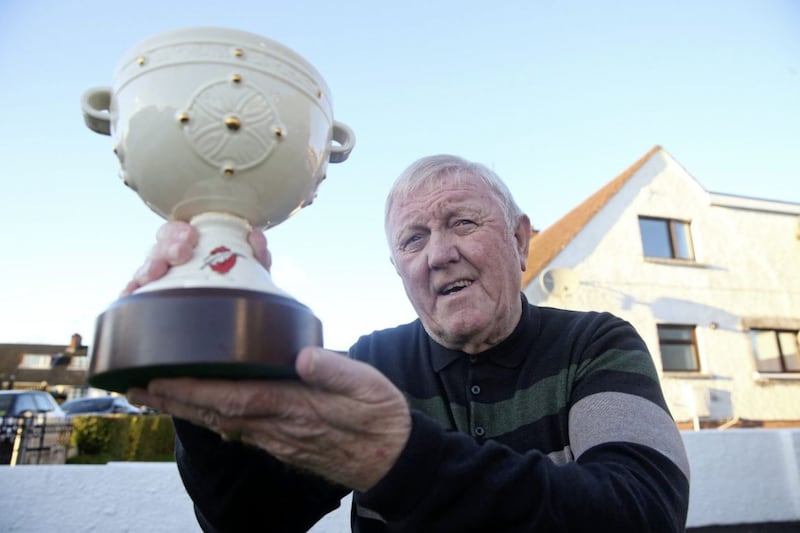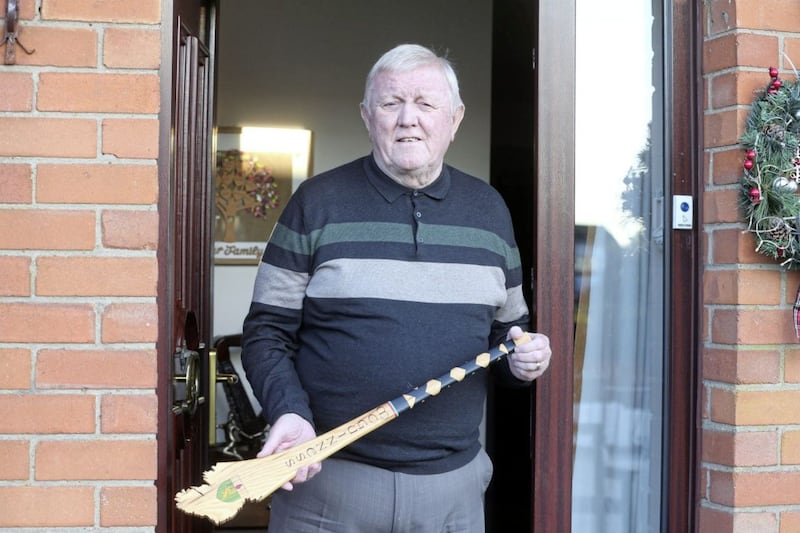THE world of Ulster hurling is a more solemn, sadder place after the death yesterday morning of the legendary Sean McGuinness.
Grief has rippled out from his beloved club Sarsfield's - 'The Paddies' - to wider west Belfast, Antrim, Down of course, Ulster and beyond.
Yet mention of his name will often be accompanied by laughter too, as tales are told of how he led Down to two Ulster titles in the Nineties. He also took Ulster to three Railway Cup Finals, losing the third of those in 1995 by a solitary point against Munster.
McGuinness will be remembered for his managerial skills, a master motivator, but also as a great man.
Danny Hughes, originally of Ballycran, spent more time than most with him in his six seasons with Down - and enjoyed it thoroughly:
"He was a great character. Apart from his hurling, I just loved the man. I was living in Belfast so I'd have picked Sean up and sometimes we'd travel right down to matches, Kilkenny, Tipperary, we travelled all over Ireland together, just me and him in the car.
"I was driving, he was in the passenger seat, and I'd just listen. He'd start in Belfast and the time flew in, just listening to his stories - not all about hurling, life in general, growing up on the Falls, his work, everything. He was a great storyteller.
"He was a great family man too. That was reflected in his 70th birthday party, up in the Balmoral Hotel. Family came from all over the world, or were on screen. He loved seeing us Down boys again too."
Sean was Antrim boss before Down, appointed as part of a triumvirate in late 1983. In the summer of 1986 the up-and-coming Saffrons almost stunned Cork in the All-Ireland semi-final, scoring 1-24 but conceding 7-11.
However, despite the promise that team held, McGuinness stepped down from the role that November, over a point of principle connected to his club.
Dominic 'Woody' McKinley, a star of that Saffrons side, regrets his departure: "Sean took us in the mid-Eighties, then there was a fall-out - but we always had a good relationship. He was in charge of Railway Cup teams I was on. You'd the utmost respect for him, he was a very highly-motivated person.
"I always thought if you could have put Jim [Nelson], God rest him, and Sean together you'd have had the complete manager. Sean cared very deeply about what he did, not just hurling in Antrim or Down but hurling in Ulster.
"You saw the relationship he had with the Down players. Maybe some people didn't like that but I didn't see it as a problem: he was doing his job there.
"That was the person he was. He wasn't going to be told what to do, as we know, very outspoken. What he did for hurling in Ulster will never be repeated."
Both men say similar things about Sean McGuinness; he didn't change his ways for anyone, anywhere.
"He was a wild players' man, he had that rapport," says McKinley. "He could build up relationships with anybody, it didn't matter where he went, he was the same man.
"He was abrupt at times and straightforward, but as players we liked that, he'd stand up for you. He didn't pull any punches, didn't step back. He sent his team out the same way, to be aggressive and tough. He built the mentality that everybody was against you.
"I don't think any Antrim players had a bad word to say about him, they loved him at that time... It's something maybe that shouldn't have happened, we should have kept him there.
"Motivation played the major part, getting teams up for it. Down had good players as well…could they have done it without him? I don't think so."
Hughes agrees, remembering that Down were drifting along when McGuinness surprisingly took the job on in late 1989 - the same year as Antrim, under his good friend Jim Nelson, had reached the All-Ireland Final:
"It was a team that was starting to develop, had potential, but we were still languishing in Division Three, maybe Division Two and back down again. We weren't really going anywhere.
"Sean really gelled the team. The players had great respect for him: if he spoke, they listened, they hung off every word he said, he was so charismatic… If said he wanted you at training, you'd be there. Before that things weren't so well gelled together, a lot of club rivalry.
"He got a bunch of guys who really wanted to play for Down, played well, and brought a lot of success. Even before we won Ulster we were pushing at the door…we knew we were getting there.
"Antrim were thinking about an All-Ireland and we pipped them in '92, beat them well actually, which was a great achievement. Sean was in great form."
McKinley chuckles when he thinks of McGuinness's way with words, his turns of phrase: "He was fit to come out with off-the-cuff stuff very quickly. Sometimes you had to go home and think about what he'd said to you. Even in defeat he had humour. He'd also be saying 'We'll get them the next time'; straightaway he was planting a seed in your head.
"He'll be a sad miss. We last met up at the Gaelfast proposals; he always wanted to yarn about hurling, telling you the rights and wrongs of it. He didn't hold back."
The magic of McGuinness lured Hughes out of retirement not once but twice with Bredagh, well into his 40s.
Sean and one of his sons, Colm, took on the south Belfast club in 2007, so Hughes couldn't hang up his hurl: "I was about to step aside at that stage but once Sean came in there was no way - I wanted to play under him again.
"I got a bad injury, broke my collarbone, and he coaxed me back to play the following year. I ended up playing for four years, only because of Sean's influence.
Hughes's last sighting of Sean McGuinness summed the man up: family, hurling, Sarsfield's: "Sean absolutely loved the craic. I last saw him in May, we were playing Sarsfield's. He was always over like a shot. I saw him talking to my two sons, Cormac and Donal, he'd have coached them at Bredagh, seeing how they were getting on. He was larger than life."


